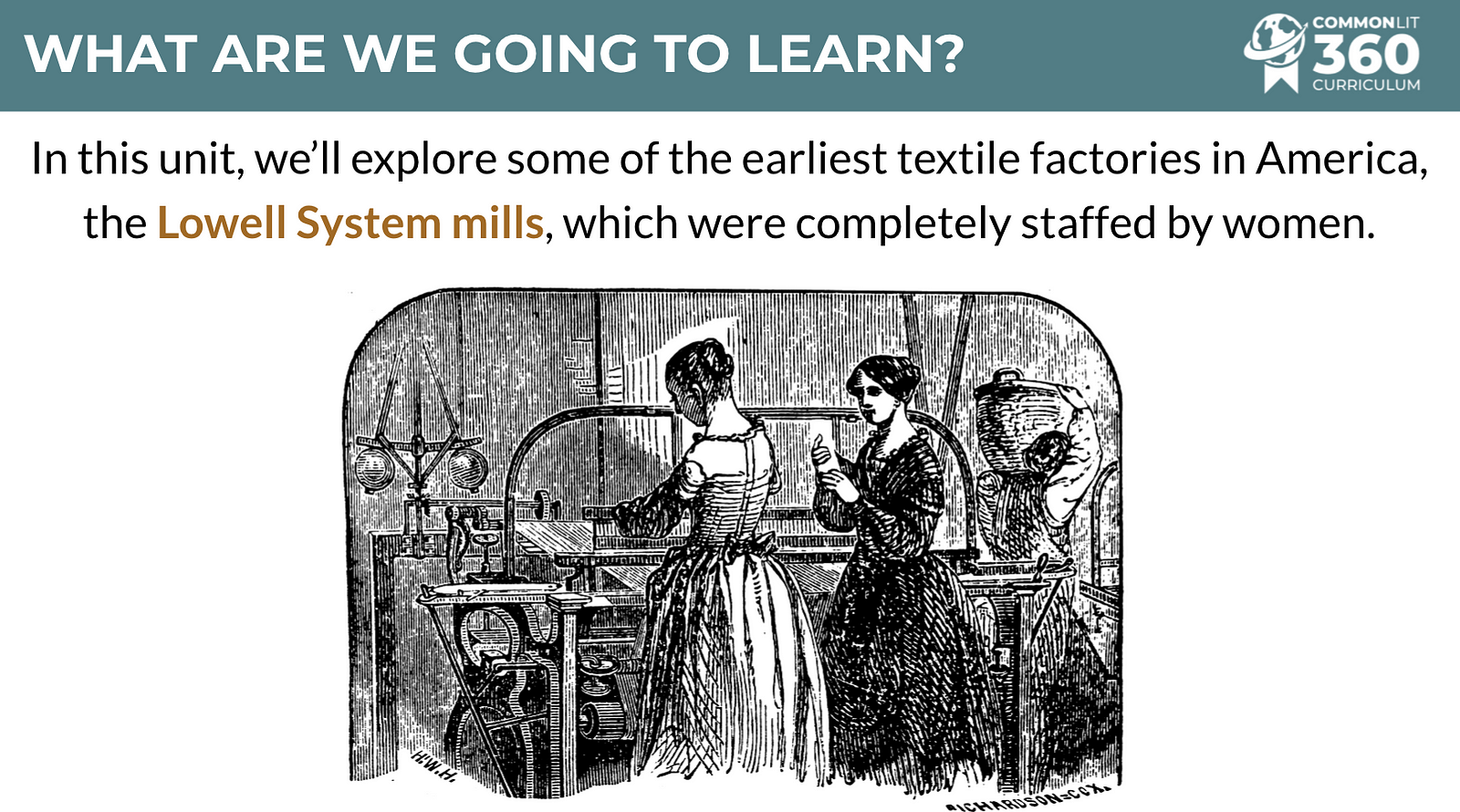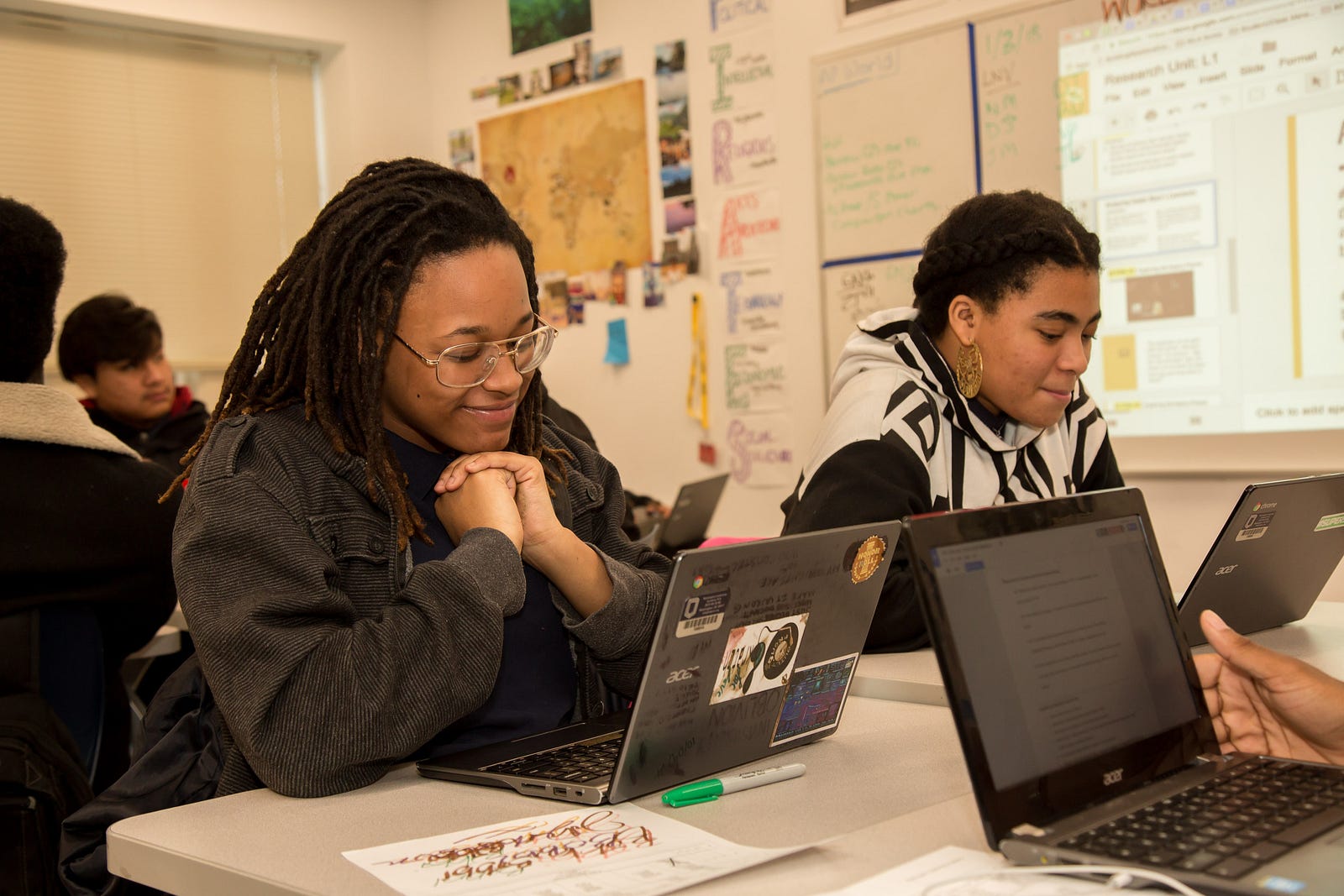 CommonLit 360
CommonLit 360 is a Knowledge-Building Curriculum. Kids will Love these Unit Topics.
CommonLit 360
CommonLit 360 is a Knowledge-Building Curriculum. Kids will Love these Unit Topics.
A run-down of the knowledge forward approach within the CommonLit 360 Curriculum for grades 6–10
I’ll never forget the moment in my teaching career when the lightbulb went off about the importance of teaching knowledge-rich units. It was my first year teaching, and I was struggling to engage students who were two grade levels behind in reading. I found a few activities on the internet that looked like they were what these students needed — more practice finding the main idea with a few short texts about different topics: ant colonies, The Supreme Court, and Jackie Robinson.
If you know anything about how students learn, you can probably imagine what happened next. Kids were really bored. And no wonder. Ant colonies have nothing to do with Jackie Robinson. There is not a thread of a connection here. Imagine you’re a kid in this class. On Monday, you’re talking about the role of the queen bee in an ant pile. On Tuesday, you’re reading about the lifetime terms of nine justices. You likely find yourself wondering, what is the point of this class? And you would be right.
At this point in my teaching career, I didn’t know anything about the science behind what gets kids motivated to read, or how our brains build language and literacy. It turns out, it is SO powerful to group texts by a unifying theme or topic. The research is super clear. When we do this, kids get to become an expert in a single area, and this builds their confidence and motivation to keep learning (Guthrie, 2001). They also learn new words and concepts that they can then carry to other classes and other texts. When we present information coherently in knowledge-forward units, students get the “why” behind what they are actually reading — to understand something important about the Supreme Court, not to “practice finding the main idea.” The skills-first approach is so inauthentic. You’d never pick up the newspaper and think, “Wow, I’m so excited to practice determining the author’s tone.” Humans read to learn something so that they can engage with the world around them. It’s so simple. Knowledge needs to be first in the ELA classroom.
CommonLit 360 is a knowledge-forward curriculum. Here’s a quick rundown of some of my favorite knowledge-building units in each grade:
- 6th Grade Unit 2, Failure & Success: This is a multi-genre unit (short stories, poems, informational texts) all focused on the idea that failure and success are interconnected. Students read multiple texts in which diverse protagonists had to try hard to ultimately achieve something, learning something from their failures along the way. I’m always surprised at how kids simply don’t understand that it is okay (and encouraged) to try and fail. Kids will write and discuss this topic, making insightful comments like, “The road to success is rocky, and successful people don’t magically become successful.” This unit was a fan favorite among kids and teachers.
- 7th Grade Unit 2, Adolescence: It’s hard to pick a favorite unit from the 7th grade stack; this one squeaks by. It’s a laugh out loud unit. It is simply joyful. Students read hilarious short stories and poems about adolescents who are experiencing the relatable ups and downs of first loves, awkward encounters, and feelings of insecurity. They build knowledge and language to talk about adolescence, develop some important self-awareness, and synthesize these ideas in a final argumentative essay.
- 8th Grade Unit 4, Contact Sports — Worth the Risk?; Across the CommonLit 360 curriculum, unit 4s focusing on research epitomize what it means to build knowledge. In this unit, students read texts that present different viewpoints on risks and rewards of contact sports. They learn authentic research skills in the process, and present their nuanced thesis in a final research paper.

- 9th Grade Unit 3, Animal Farm: CommonLit 360 units also include some wonderful full-length texts like George Orwell’s Animal Farm. This isn’t your typical book unit, however. Throughout the unit, students are thinking about ignorance, manipulation, and power. They’re building knowledge through informational texts about the famine in Russia that inspired the allegory, and about the czars on whom the characters are based. It’s packed with resources and during-reading questions that will make the book come alive.

- 10th Grade Unit 4, The Fashion Industry — Past to Present: This is another research unit in the CommonLit 360 curriculum, one that happens to be history rich. At first glance, it may sound boring, but honestly, this one was a hit with high schoolers! Students build knowledge about working conditions in the fashion industry, starting with one of the earliest factories in America, the Lowell Mill in Massachusetts. They read original letters from women who worked in the mills, and analyze political cartoons from back in the day. They think about how the fashion industry has evolved since then, and read texts about today’s fast fashion industry. Then they get to pick a brand of their choice to conduct their own authentic research. Really cool!
This is just the beginning. To explore all of the unit topics in one place, check out this CommonLit 360 Unit Overview document and this CommonLit 360 Unit Topics List.
What else can you expect from a 360 unit? The presentation of the materials follow the best practices of good curriculum design found in Johnassen’s 2002 long-term study (which examined the factors of English Language Arts curricula associated with stronger academic achievement). Texts are selected around relevant and engaging themes. Unit introductory activities provide a strong intellectual basis for inquiry in the unit and introduce the theme and essential question. Key questions govern the exploration of the unit’s texts. Assessment involves the application of the consolidated ideas. In short, it’s a recipe for a fully fun and engaging experience in ELA that will tap into your students’ innate curiosity.

Not convinced yet? Studies have repeatedly found that knowledge-rich teaching has been associated with a number of advantages:
- Increased student motivation and encouragement of a life-long learning attitude (Strube, 1993);
- Improved classroom interaction and student communication (Adams & Bushman, 2006);
- “[A]llowing students to develop a better understanding of the organization of text, to work cooperatively to solve problems, and to become more self-confident as they (relate) the language of literature to the language of their everyday lives” (Smith & Eric Clearinghouse on Reading, 2003);
- Improved student research and critical inquiry skills (Johannasen, 2002);
- Creation of “authentic situations” in which “learning becomes real and lasting” (Brodzick, McPhee, & Shanahan, 1996, p. 540);
- More emotional and personal involvement in a text (Callison, 1999).
Next Steps
Interested in learning more about the 360 Curriculum?
- Browse the full CommonLit 360 Curriculum for grades 6–10 here.
- Sign up for a CommonLit 360 webinar for an opportunity to learn more and ask questions.
- Learn about the affordable wraparound services including onboarding and rollout support for schools and districts looking to adopt CommonLit 360.
